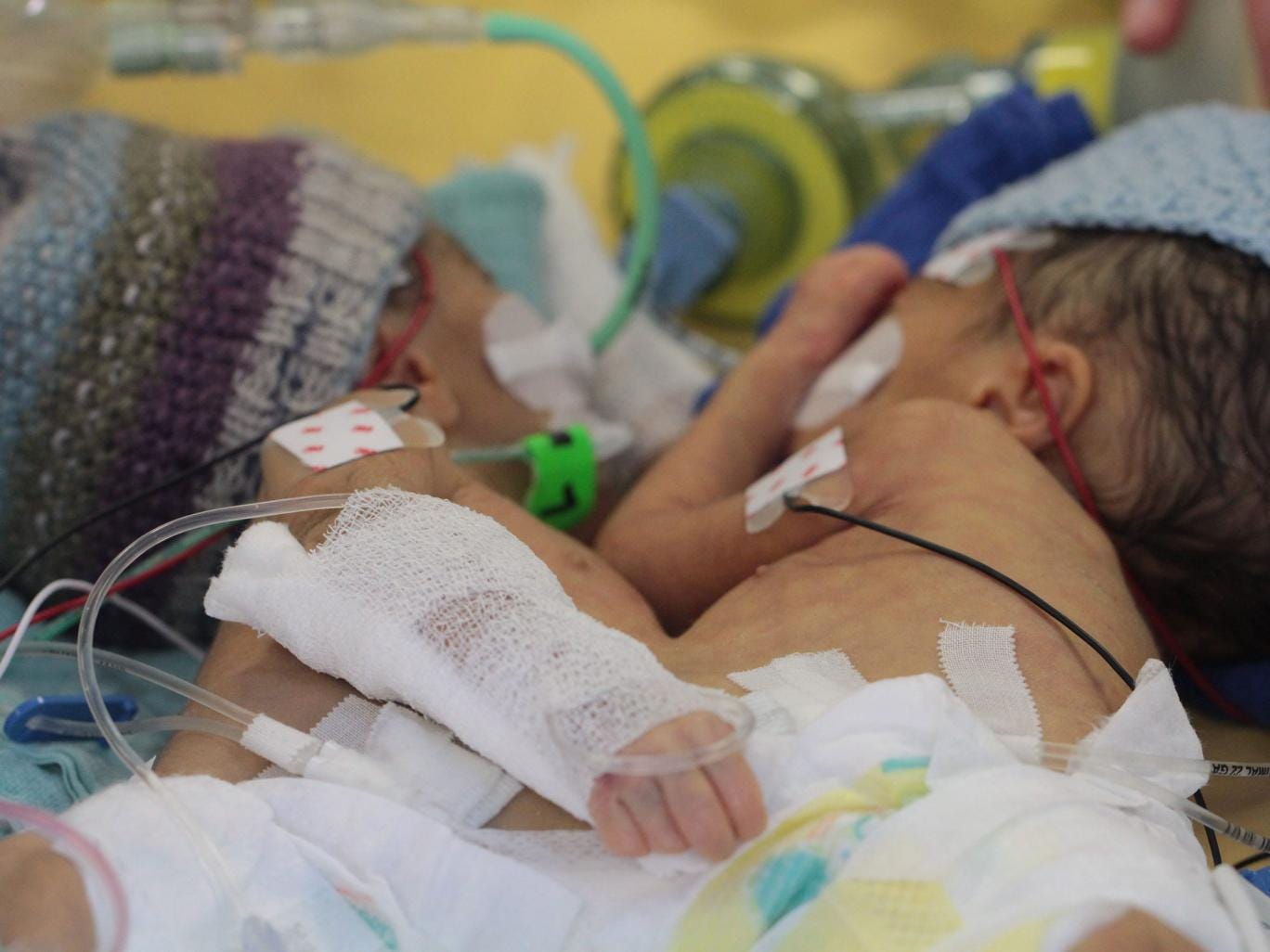“GIVE me lucky generals,” Napoleon is supposed
to have said, preferring them to talented ones.
Muhammadu Buhari, a former general, has not
had much luck when it comes to the oil price.
Between 1983 and 1985 he was Nigeria’s
military ruler. Just before he took over, oil
prices began a lengthy collapse; the country’s
export earnings fell by more than half. The
economy went into a deep recession and Mr
Buhari, unable to cope, was overthrown in a
coup.
Now he is president again. (He won a fair
election last year against a woeful opponent;
The Economist endorsed him.) And once again,
oil prices have slumped, from $64 a barrel on
the day he was sworn in to $32 eight months
later. Growth probably fell by half in 2015, from
6.3% to little more than 3% (see article). Oil
accounts for 70% of the government’s revenues
and 95% of export earnings. The government
deficit will widen this year to about 3.5% of
GDP. The currency, the naira, is under pressure.
The central bank insists on an exchange rate of
197-199 naira to the dollar. On the black
market, dollars sell for 300 naira or more.
Advertisement
Instead of letting the naira depreciate to reflect
the country’s loss of purchasing power, Mr
Buhari’s government is trying to keep it aloft.
The central bank has restricted the supply of
dollars and banned the import of a long list of
goods, from shovels and rice to toothpicks. It
hopes that this will maintain reserves and
stimulate domestic production.
When the currency is devalued, all imports
become more expensive. But under Mr Buhari’s
system the restrictions on imports are by
government fiat. Factory bosses complain they
cannot import raw materials such as chemicals
and fret that, if this continues, they may have to
shut down. Many have turned to the black
market to obtain dollars, and are doubtless
smuggling in some of the goods that have been
banned.
Nigerians have heard this tune before. Indeed,
Mr Buhari tried something similar the last time
he was president. Then, as now, he resisted
what he called the “bitter pill” of devaluation.
When, as a result, foreign currency ran short, he
rationed it and slashed imports by more than
half. When Nigerians turned to the black market
he sealed the country’s borders. When
unemployment surged he expelled 700,000
migrants.
Barking orders at markets did not work then,
and it will not work now. Mr Buhari is right that
devaluation will lead to inflation—as it has in
other commodity exporters. But Nigeria’s policy
of limiting imports and creating scarcity will be
even more inflationary. A weaker currency would
spur domestic production more than import
bans can and, in the long run, hurt consumers
less. The country needs foreign capital to
finance its deficits but, under today’s policies, it
will struggle to get any. Foreign investors
assume that any Nigerian asset they buy in
naira now will cost less later, after the currency
has devalued. So they wait.
Those who fail to learn from history...
Mr Buhari’s tenure has in some ways been
impressive. He has restored a semblance of
security to swathes of northern Nigeria that
were overrun by schoolgirl-abducting jihadists.
He has won some early battles against
corruption. Some of his economic policies are
sound, too. He has indicated that he will stop
subsidising fuel and selling it at below-market
prices. This is brave, since the subsidies are
popular, even though they have been a disaster
(the cheap fuel was often sold abroad and
petrol stations frequently ran dry). If Mr Buhari
can find the courage to let fuel cost what the
market says it should, why not the currency,
too? You can forgive the general for being
unlucky; but not for failing to learn from past
mistakes.
Source- The economist.
Sunday, 31 January 2016
President Muhammadu Buhari is repeating an economic error he made as dictator 30 years ago
Conjoined twin girls successfully separated by surgeons at just eight days old

The girls, who together weighed just 2.2kg (4lb 12oz), are thought to be the smallest and youngest babies to be separated anywhere in the world. Surgeons in Switzerland carried out the operation even though it was judged to have only a 1 per cent chance of success.
Lydia and Maya were joined at the liver when they were born in December, with another sister, eight weeks premature.
The conjoined girls were seriously ill as “a very great amount of blood flowed from one child to the other through the liver”, Hôpitaux Universitaires de Genève said. “One child had too much blood and blood pressure that was much too high, while the other child did not receive enough blood and had blood pressure that was too low,” it said.
The two girls are now breast-feeding and putting on weight, and their sister is also doing well.
Five things would happen if everyone stopped eating meat

The world's hungry would no longer be hungry
Yes, your beef or pork may be locally grown, but what about the animals' feed? Vegetarians and vegans aren't gobbling up all the grains and soybeans - cattle are. A staggering 97 per cent of the world's soya crop is fed to livestock.It would take 40 million tons of food to eliminate the most extreme cases of world hunger, yet nearly 20 times that amount of grain is fed to farmed animals every year in order to produce meat. In a world where an estimated 850 people do not have enough to eat, it is criminally wasteful to feed perfectly edible food to animals on farms in order to produce a burger rather than feeding it directly to people, especially when you consider that it takes roughly six pounds of grain to produce one pound of pork. As long as a single child goes hungry, this kind of waste is unconscionable.
There would more land available for our growing population
Countries around the globe are bulldozing huge swathes of land in order to make room for more factory farms to house all the additional chickens, cows and other animals as well as for the huge quantities of crops needed to feed them. But when you eat plant foods directly, instead of indirectly eating bushels and bushels of grain and soya that have been funnelled through animals first, you need a lot less land.Vegfam, a charity which funds sustainable plant-food projects, estimates that a 10-acre farm can support 60 people by growing soybeans, 24 people by growing wheat or 10 people by growing maize, but only two by raising cattle. What's more, Dutch scientists predict that 2.7 billion hectares of land currently used for cattle grazing would be freed up by global vegetarianism, along with 100 million hectares of land currently used to grow crops for livestock.
With the population of the UK expected to exceed 70 million by 2030, we'll need all the land we can get to accommodate the extra demand for living space and food.
Billions of animals would avoid a lifetime of suffering
On many industrial farms, animals are kept in cramped conditions and will never raise families, forage for food or do anything else that is natural and important to them. Most won't even get to feel the warmth of the sun on their backs or breathe fresh air until the day they are loaded onto lorries headed for the abattoir. There is no better way to help animals and prevent their suffering than by choosing not to eat them.The risk of dangerous antibiotic resistance would reduce
Factory-farmed animals are disease-ridden as a result of being crammed by the thousands into filthy sheds, which are a breeding ground for new strains of dangerous bacteria and viruses. Pigs, chickens and other animals on factory farms are fed a steady diet of drugs to keep them alive in these unsanitary, stressful conditions, increasing the chance that drug-resistant superbugs will develop.A senior officer with the UN's Food and Agriculture Organisation called the intensive industrial farming of livestock an “opportunity for emerging disease”, while the US Centers for Disease Control and Prevention declared that “much of antibiotic use in animals is unnecessary and inappropriate and makes everyone less safe”.
Sure, the overprescribing of antibiotics for humans plays a part in antibiotic resistance. But eliminating the factory farms from which many antibiotic-resistant bacteria emerge would make it more likely that we could continue to count on antibiotics to cure serious illnesses.
The NHS would be under less strain
Obesity is literally killing British people. The NHS has warned that, if left unchecked, the country's obesity rates will bankrupt the health service. Meat, dairy foods and eggs – all of which contain cholesterol and saturated fat – are the main culprits in obesity, which contributes to the UK's top killers: heart attacks, strokes, diabetes and various types of cancer.Yes, there are overweight vegetarians and vegans, just as there are skinny meat-eaters. But, on average, vegans are about one-tenth as likely to be obese as their meat eating counterparts. Once you replace high-fat animal-derived foods with healthy fruits, veggies and grains, it becomes a lot harder to pile on the pounds. What's more, many health problems can be alleviated and even reversed by switching to a plant-based diet.
Going vegan might not make the world a perfect place, but it would help make it a kinder, greener, healthier one.
Boko Haram burn children to death in attack on village in north-eastern Nigeria

According to an eyewitness survivor - who hid in a tree to escape the attack - the terrorists set fire to the village of Dalori and shot people attempting to flee in the country’s north-east on Saturday evening.
Alamin Bakura said the shootings and burnings continued for four hours and he had lost several of his own family members in the attack.
The violence then continued as three female suicide bombers followed the survivors who managed to flee to the neighbouring village of Gamori before blowing themselves up - killing many more people.
Soldiers said that dozens of charred corpses and bodies with bullet wounds littered the streets in the village just three miles from Maiduguri - the birthplace of Boko Haram and the scene of a bomb attack by the group which killed at least 80 people in December.
According to a local security guard, Abba Shehu, the total death toll is unknown because bodies are still being recovered from the streets and the surrounding bush where insurgents hunted down fleeing villagers.

Abubakar Shekau, current leader of Boko Haram, declared the group's allegiance to Isis in March 2015
Former residents of Baga on the border with Chad - which was the scene of a massacre last year in which up 2,000 people were killed - are reportedly too frightened to return home as Boko Haram fighters retreated to the heavily guarded islands around Lake Chad.
The terror group - which declared an “Islamic caliphate” in the territory it previously controlled in northern Nigeria - pledged allegiance to Isis in an audio message which appeared to be recorded by the group’s leader Abubakar Shjeka.
Since 2009, the Boko Haram uprising has killed around 20,000 people and driven 2.5m from their homes.
Additional reporting by the Associated Press
Photos: surprising ways in which smugglers carry illegal items into saudi Arabia
As seen in the photos, some people have hid bottles of whiskey in the crevices of their cars in the hope that the normal-looking exterior is enough to mask what lies beneath. In the first six days of January alone, almost 535,000 Captagon pills were found during a number of different searches by Saudi customs officers: 414,000 pills were found in truck tires; 100,000 were concealed in wooden pallets; and another 10,000 were found in the lining of a man’s underwear.
Father Mbaka says he is going to suffer following his transfer to another Parish
Rev. Fr. Ejike Mbaka, yesterday Jan. 30th bowed out of Christ the King
Parish, GRA, Enugu, which he'd presided over as parish priest for 20
years. On his way to his new presiding parish, Our lady Parish, Emene,
in Enugu, over 30 lorries accompanied by thousands of his faithful
followers escorted him in a motorcade to a new church where he will be
an assistant parish priest.
The transfer of reverend fathers is not an issue in the catholic church as it is a routine exercise that is done every once in a while but Fr. Mbaka’s transfer became an issue because the people saw it as a measure for his recent prophecies especially that of December 31st 2014, when he predicted that former President Goodluck Jonathan would be defeated in the 2015 elections. This has however been dismissed by the church.
His transfer as a parish priest to a resident priest, in which he will serve under another priest, has also caused a stir among people because he has been with the catholic church for years so it is only normal to make him the parish priest and not an assistant.
While handing over formally to his successor yesterday, Mbaka said:
The transfer of reverend fathers is not an issue in the catholic church as it is a routine exercise that is done every once in a while but Fr. Mbaka’s transfer became an issue because the people saw it as a measure for his recent prophecies especially that of December 31st 2014, when he predicted that former President Goodluck Jonathan would be defeated in the 2015 elections. This has however been dismissed by the church.
His transfer as a parish priest to a resident priest, in which he will serve under another priest, has also caused a stir among people because he has been with the catholic church for years so it is only normal to make him the parish priest and not an assistant.
While handing over formally to his successor yesterday, Mbaka said:
“I know we are going to suffer; between now and few months to come, I am going to suffer; I am going to suffer because I have no place to lay my head; I am going to suffer because I have no place to keep the Ministry’s assets; I know I am going to suffer; fortunate going to suffer because I have no ly it’s going to happen in the month of Lent; so I am going to use my exit here to observe the Lent. But Jesus said it to His apostles in John 16:20, ‘You will be sorrowful and the world will be rejoicing but very soon I will turn your sorrows to joy.’ So I am waiting for that moment because for now I know we are going to suffer. The Adoration Ministry is passing through suffering right now; even though I have accepted it as the will of God; it is the will of God through suffering; it is a mega suffering. But however, the grace of God will carry us all; even though some of you may pray that God should remove this thorn from us, the scripture says ‘His grace is sufficient for us; for its even in your weakness that the power of God is demonstrated. So we are moving but don’t forget the scriptures, ‘my brothers they make me keeper of vineyards, my own vineyard I keepeth not. All these while we have been keeping vineyards, building for Christ The King Parish…Bishop Gbuji asked them, how much …but because I don’t want to disclose my charity, they can’t keep that account. How many trailer loads of cement came here? All the monies I made from my cassette and other private crusades all of them were used to build this church. We cannot quantify it but let God be glorified.”
“It is the will of God, and when the will of God either permissive or however, happens, nobody should question it. All you have today is Amen; so to the will of God Fr. Mbaka has said Amen".He said he's accepting the decision of the church leadership with absolute obedience, adding that nobody should see him as an obstinate priest. He also assured them that the parish would not collapse due to his exit, and urged the members to treat his successor, Rev. Fr. Theodore Ozoamalu, well, and to assist him in any way he needs help and not allow him to cry.
“Don’t starve him; don’t allow him to suffer; in my own time I didn’t need your help because God blessed me in my own unique way and I am happy. God will keep the parish because we have fought the good fight; I am not regretting anything and the highest gift God has given here is his Holy Spirit who assisted me up till now" he said.Source: TheSun
Baby monitors 'hacked': Parents warned to be vigilant after voices heard coming from speakers

Parents are being warned that a growing number of people are hacking baby monitors and talking to children as they sleep.
New York's Department of Consumer Affairs (DCA) has had to issue a public statement warning parents to make sure their video monitors are secure.
A spokesperson from the Department warned parents that if the monitors aren’t secured then it’s relatively easy for people to hack into them.
DCA Commissioner Julie Menin said in a statement to NBC news: "Video monitors are intended to give parents peace of mind when they are away from their children but the reality is quite terrifying — if they aren't secure, they can provide easy access for predators to watch and even speak to our children."
Some parents reported how they had walked into their child’s room in the middle of the night only to hear men speaking down the monitors at their children.
Buzzfeed reported how one couple’s son told them he was afraid of the voices coming from his bedroom.
One night the parents heard the voice for themselves. “Wake up little boy, daddy’s looking for you,” the voice told the boy, according to CBS News.
As they entered the room, the voice said: “Look, someone’s coming.”
The Department recommends that parents buy a secure device and change the password regularly.It happens because many baby monitors connect to the internet - once it’s part of a network it’s easy for hackers to target the monitor and attack it.
Try to avoid attacks by keeping software updated and turning the device off when it’s not being used.
New York's Department of Consumer Affairs (DCA) has had to issue a public statement warning parents to make sure their video monitors are secure.
A spokesperson from the Department warned parents that if the monitors aren’t secured then it’s relatively easy for people to hack into them.
DCA Commissioner Julie Menin said in a statement to NBC news: "Video monitors are intended to give parents peace of mind when they are away from their children but the reality is quite terrifying — if they aren't secure, they can provide easy access for predators to watch and even speak to our children."
Some parents reported how they had walked into their child’s room in the middle of the night only to hear men speaking down the monitors at their children.
Buzzfeed reported how one couple’s son told them he was afraid of the voices coming from his bedroom.
One night the parents heard the voice for themselves. “Wake up little boy, daddy’s looking for you,” the voice told the boy, according to CBS News.
As they entered the room, the voice said: “Look, someone’s coming.”
The Department recommends that parents buy a secure device and change the password regularly.It happens because many baby monitors connect to the internet - once it’s part of a network it’s easy for hackers to target the monitor and attack it.
Young Somali activist sentenced to death for being a lesbian
 mmmm
mmmm When the boy came into the room, his eyes brimmed with tears. The news he brought was devastating. “They are talking about killing you,” he told his older cousin.
Using a phone smuggled into her room, Sahra (whose name has been changed here over concerns for her safety) sent a despairing plea for help to friends on the outside. Although she didn’t know it then, her killing was thought to have been scheduled to take place after Friday prayers two days later, and time was running out.
Sahra, a 22-year-old Somali woman, remembers swaying with shock as she received the news. “I felt like I couldn’t breathe. One day they were looking for a guy for me to marry, the next they were looking to take my life,” she recalls. “It was horrible.”
In the eyes of her extended family, Sahra had brought shame on them all. From her family’s self-imposed exile in Uganda, she had long courted controversy as an outspoken advocate for women’s rights. But her personal safety took a turn for the worse when she was outed as a lesbian, setting in motion events that caused her to move to Mogadishu in Somalia, leaving her open to the wrath of her relatives.
Thousands of homosexual men and women in Somalia keep their sexual orientation a closely guarded secret in the knowledge that bringing it out into the open would attract potential retribution from al-Shabaab, the Islamist terror group, or armed gangs.
At the age of 12, Sahra was already campaigning for Somali women’s rights through poetry, attacking the practice of female genital mutilation. She quickly became a target, and one day was abducted close to her home and taken to a house where she was beaten. She still bears the scars. After her release, her parents whisked Sahra and her brother off to Kampala in Uganda, where they were to spend the next decade. She continued to campaign against taboo issues such as FGM through rap music. Her dream was to become a hip-hop artist.
But everything changed late last year when an acquaintance publicly revealed that Sahra was gay. She started to receive threatening calls, but going to the police was difficult, as they are often openly hostile towards the LGBT community. In the wake of a draconian new anti-homosexuality law passed two years ago, many gay people fled to neighbouring Kenya for refuge after the act triggered a wave of house burnings and violence. That law was later annulled on a technicality.
Others, like Sahra, tried not to draw attention to their sexual orientation. But as she returned home from college one day, she found her way home blocked by four men. “I was attacked,” she says. “They beat me, and told me: ‘This is not done here.’”
in Newyork Jason Jeremias, an activist and theatre producer who had struck up a friendship with Sahra during workshops in Uganda, learned of the attack, and started to look at ways of getting the rapper out of the East African country.
Sahra’s mother, meanwhile, confronted her daughter. “Mum asked me if I was a lesbian. I said, ‘What makes you think I am one?’” she says from North America, where she now lives. “My mum said: ‘Prove me right or prove me wrong. You have to go to Somalia.’”As an activist, Sahra was only too aware of the attitudes towards homosexuality in Somalia, where many women moved behind the veil as the country became more religiously conservative in the 25 years since the overthrow of the military regime of Siad Barre.
Homosexuality is officially punishable with a three-year prison sentence, but in areas where the government does not hold sway, the killing of the few people suspected of being gay is a probability, with victims sometimes stoned to death.
Being gay in Somalia is “just not acceptable”, says Leyla Hussein, the London-based Somali founder of women’s rights group Daughters of Eve. “There are a lot of gay Somali women, but they will never come out. They don’t even come out to their own families.”
Sahra was flown to Mogadishu, taken to her grandmother’s house, and told that she would marry. Later, elders from Sahra’s ancestral village came to the house to discuss her fate. Sahra, confined upstairs, was unaware of the discussions, but a female family friend told Mr Jeremias that they had decided to kill Sahra.
In her room, Sahra – who had discovered her apparent fate from her young cousin – was sunk in despair. “The pressure was building up. I was really freaked out, and the thought of getting away didn’t even occur to me,” she says. She was told to prepare for a journey to her home village the following day after Friday prayers. She believed – as did those on the outside – that she was being taken to her death.
Unknown to Sahra, her friends were finalising an escape plan, brought forward from Saturday to Friday. They got word to her, telling her to look for the family friend from her window while the men were at prayers. A car then took her to a rendezvous point with the people – who cannot be named for security reasons – who would eventually get her out of the country. She escaped probable death with only hours to spare.
Since her escape, Sahra has yet to speak to her mother. “I will not blame my mum,” Sahra says. “To her thinking, she was doing the best she could for me.”
Sahra is still trying to make sense of what happened to her, dazed by the fact that her life could alter so dramatically in a matter of weeks. “My life was great in Uganda,” she says. “I had a lovely family. Never did it cross my mind that something like this could happen to me.”
Saturday, 30 January 2016
Scientist fires gun at himself underwater in death-defying physics experiment
 The bullet exited the barrel with the same force it would if it was above the water Andreas Wahl/YouTube
The bullet exited the barrel with the same force it would if it was above the water Andreas Wahl/YouTube
A daredevil researcher who wanted to see what would happen if he fired a gun underwater used himself as the target.
Andreas Wahl filmed himself standing in a swimming pool with his bare chest facing the loaded barrel of an assault rifle.
Almost unthinkably, Mr Wahl maintains his composure in the video as he stares straight ahead before pulling a long rope rigged to the weapon's trigger.
He can be heard saying "shot coming" before counting down from three and setting the gun off.
But, in line with Mr Wahl's predictions, the bullet sank before it even reached halfway - sparing the scientist's life.

Andreas Wahl stood in a pool with an assault rifle pointed at his bare chest

Water bubbles followed the bullet as it shot towards Mr Wahl
In the video, which was posted to YouTube, Mr Wahl says: "It's harder to create movement in water than in air, because water molecules are closer together than air molecules."
The footage shows him looking rather relieved - before he dives down to the bottom of the pool to retrieve the bullet, which he brandishes above his head in victory.
According to the Science Channel's #1 series Outrageous Acts of Science, as reported by Mail Online, guns actually work in the same way underwater as they do in the air.
But the reason Mr Wahl was not injured by the bullet is because water is 800 times denser than air, which stops it from travelling so far and so fast.
This resistance slows the bullet down and causes it to sink to the bottom.
It is not the first dangerous stunt Mr Wahl has attempted - previous experiments have seen him soaking himself in water before trying to roast himself in a fire.
'Duct tape challenge' leaves 14-year-old with serious head injuries
Duct tape challenge: What is YouTube craze that left teenager with serious head injury?
The trend hit the media this week following a serious injury

Fourteen-year-old Skylar Fish suffered severe head injuries, a brain aneurysm and damage to his eye socket - prompting serious questions as to the potential risks associated with the 'challenge'.
What is the duct tape challenge?
Participants are tied with the strong adhesive up for three minutes, and then have three minutes to escape. The challenge and reaction is recorded and the video posted to social media, where it is often widely shared using the hashtag #ducttapechallenge.
It is a more extreme example among a series of internet trends that involve people embarrassing themselves on video while completing various uncomfortable challenges.
Less contentious examples include the 'ice bucket challenge', which saw people such as Bill Gates and Steven Spielberg being soaked with freezing cold water to raise money to fund research into Amyotrophic Lateral Sclerosis, a neurodegenerative disease. The duct tape challenge appears to involve no fundraising element.
How popular is it?
Some YouTube videos have received millions of views, and a search for 'duct tape challenge' on YouTube brings up 239,000 results. That is not counting the unknown number of school children who have played it just for fun, without posting to social media.

Screenshot from a video which had over 3.7 million views
Seemingly not, although while many appear to have taken part in the challenge without suffering any harm, Skylar Fish's injuries show the potential for the game to go wrong.
He was standing unrestrained when taking part and accidentally fell onto a window frame, severely damaging his eye socket. A crowd-funding campaign is now helping to raise money for his medical bills.
Has anyone else been hurt by one of these internet challenges?
A 'gun selfies' craze, in which posters pose for photos with firearms was not only a trend of questionable ethics but also resulted in the death of 19-year-old Deleon Alonso Smith in Houston, Texas. Mr Smith accidentally shot himself in the throat while taking the pictures. A 21-year old woman in Russia also wounded herself doing the same thing.
Are there some less extreme internet crazes?
Yes. Planking, in which participants are photographed lying face down vertically in random places, appears entirely harmless.
However, some more extreme devotees took to planking across railway tracks and other unsafe places. In 2011, 20-year-old Australian Acton Beale fell to his death from the balcony of a seven-storey building after a night out.
The polygamy hoax that spread from Iraq to Eritrea

A false rumour that men in Eritrea
would be legally obliged to marry at least two women went viral this
week. But it's a hoax that has hit at least four countries to date, and
actually began in Iraq, where it wasn't as implausible as it seems.
When
a far fetched story about enforced polygamy in Eritrea began
circulating, it captured attention across the continent. But in fact
similar stories - all of them false - have cropped up in a number of
countries since the beginning of the year.And in each case, the way hoaxers spread the rumour on social media pretty much identical. Here's how it plays out.
An "official" government document is leaked on social media, bearing a letterhead, or the signature of a supposed dignitary.
It reads - and we're paraphrasing here - "Due to the recent troubles in our country, we are experiencing a serious shortage of men, and an abundance of woman. Men are now legally required to take at least two wives, and any that fail to do so will face strict punishment." The punishments range from life imprisonment to the death penalty.
When a version of the falsified document appeared in Eritrea this week - as the BBC has already reported - it went viral, and was picked up by a number of news organisations as fact

The fake document, supposedly from Eritrea, that was widely shared in Africa
The Eritrean government has since been battling to set the story straight, dismissing the document as a fraud, and explaining that polygamy is illegal in the East African nation. It hasn't been able to stop chatter spreading on social media, and a raft of jokes at the countries expense. But more on those later.
Although the rumour about Eritrea went viral, it isn't the first country to be hit by the hoax. At least three other countries have been the subject of the same story, which appears to have begun in Iraq.
A letter mocked up using an official looking letterhead began circulating there early in January, making the same declaration. Because of the country's recent woes, men who failed to take at least two wives would be punished by death, it read.

Of course, it was a hoax as well, but it may not have seemed as absurd a proposition as it did later in other countries. Back in 2011 the BBC reported that Iraqi politicians were considering offering men financial incentives to marry a second wife. Years of conflict have left the country with more than a million war widows, and a shortage of unmarried men. The proposals were never enacted.
Following Iraq, a near-identical hoax document surfaced claiming to be from the government of Sudan. And Arabic news sites suggest a similar letter supposedly from officials in Saudi Arabia was circulated as well - before the story about Eritrea cropped up.
And the rumour about Eritrea? That actually began in Kenya and Nigeria. It was first reported by Kenyan news site Crazy Monday, well known for its focus on gossip stories according to Mathias Muindi from the BBC's media monitoring service. The story was picked up and reported as fact in Nigeria and later South Africa as well.
It spread quickly, and it wasn't long before jokes stared spreading on social networks like WhatsApp and Twitter, mostly involving men from outside the country flocking to Eritrea in the hope of finding multiple wives.

The rumour was shared so widely that the Eritrean government felt compelled to dispel it. The country's information minister Yemane Gebremeskel took to Twitter, writing "the media frenzy to parrot this ludicrous, fabricated and trite story... on mandatory polygamy is appalling".
An Eritrean blogger, Filmon Zerai, even posted images which showed the law banning polygamy written out word for word
 speaking to BBC Trending, Zerai was keen to send a very different message
about the country. "People have this misconception about Eritrea that
it's lawless, but that's not true. There are laws, we have a civil
society," he said
speaking to BBC Trending, Zerai was keen to send a very different message
about the country. "People have this misconception about Eritrea that
it's lawless, but that's not true. There are laws, we have a civil
society," he said8 Things To Know About The Deadly Rat Which Transmits Lassa Fever
With the outbreak of the deadly Lassa fever across Nigeria, here are things to know about the virus and the deadly rat that transmits it.
1) Lassa fever is an acute viral illness that occurs in west Africa and is caused by the Lassa virus.
2) The Lassa virus, a member of the
Arenavirus family of viruses is a single-stranded RNA virus and is
zoonotic, or animal-borne.
3) The illness was discovered in 1969
when two missionary nurses died in Nigeria and the virus is named after
the town in Nigeria where the first cases occurred.
4) In 1972, the Natal multimammate rat (aka Mastomys natalensis or the African rat) was found to be the natural host of the Lassa fever virus.
5) It is a species of rodent in the
family Muridae. are the largest family of rodents and indeed of mammals,
containing over 700 species found naturally throughout Eurasia, Africa,
and Australia.

6) Mastomys natalensis is
commonly known as the “multimammate rat” due to the female’s multiple
and prominent mammary glands. These rats associate closely with humans,
and are commonly found in and around African villages.
7) The virus is transmitted to humans
from contacts with food or household items contaminated with rodent
excreta. Person-to-person infections and laboratory transmission can
also occur, particularly in the hospital environment in the absence of
adequate infection control measures.
8) Prevention of Lassa fever relies on
promoting good “community hygiene” to discourage rodents from entering
homes. Effective measures include storing grain and other foodstuffs in
rodent-proof containers, disposing of garbage far from the home,
maintaining clean households and keeping cats.
Family members should always be careful to avoid contact with blood and body fluids while caring for sick persons.
Friday, 29 January 2016
Man Give Birth to Parasitic ‘Twin’ With Growing Teeth;PHOTO


Narendra Kumar, 18, was taken to hospital after suffering vomiting, weight loss and pain.
After examining him doctors found the grim discovery – a 2.5kg mass of bone, hair and teeth that had formed an umbilical cord-like structure inside Narendra’s abdomen.
The diagnosis was ‘foetus in fetu’, a rare condition which develops during pregnancy with twins – where one foetus enters the other through the umbilical cord, and lives there as a parasite.
Doctors at the Swaroop Narayan Hospital in Allahabad, Uttar Pradesh, told Narendra that the parasite had lived and grown inside his body since his birth.
Dr Rajeev Singh told MailOnline that surgeons only found the ‘twin’ when they operated on Narendra on Monday.
‘Technically, the foetus was alive and was growing due to metabolic activity in his body,’ he said.

iPhone 7 Video leaks: Is this what the new handset will look like?

We have well over a year to go, but people are already getting excited and speculating about what to expect from the iPhone 7.
Techies at the German site iPhone-Tricks.de have dreamt up some pretty amazing features we would actually like to see (although the headphone thing still isn’t cool, Apple).
For example, their fantasy phone has a borderless display – meaning your screen sort-of just spills out everywhere.
There’s also an integrated home button, which disappears when you’re not using it.
And apps such as weather and music can be partially expanded on the homepage without needing to be opened.

But, as good as this all sounds, Apple aren’t releasing the iPhone 7 until the end of next year, and it could still be too early to speculate.
This is not to be taken as an iPhone 7 leak, but rather as a design study that allows for fantasy and creativity to take over,’ Steven at iPhone-Tricks wrote.
‘It is purely hypothetical and aims to please your inner Apple geek.
‘However, we do think that our design concept is pretty realistic and might be close to the real iPhone 7, as we have taken multiple recent rumours into account.’
Still, if the phone were to look like this, we might be interested – as long as they keep the headphone jack.
Man dies in crash while driving and masturbating to porn on his phone
‘Keep your eyes on the road and your hands on the wheel’ is the
advice given to all new drivers, though it’s no secret that that won’t
always be the case.
But Clifford Ray Jones had his eyes off the road and his hands off the wheel not because he was momentarily distracted or because he wanted to change the radio station, but because he was masturbating to porn on his phone.
The 58-year-old was pleasuring himself on Detroit’s Interstate 75 in the small hours on Sunday and failed to notice his car roll out of control.

It then crashed, ejecting Jones, who was not wearing a seat belt, through the sun roof of the ’96 Toyota.
Police found his body at around 3.30am without any trousers on.
Michigan State Police Lieutenant Mike Shaw told CBS Detroit it was one of the most bizarre crash causes he had ever heard of.
But Clifford Ray Jones had his eyes off the road and his hands off the wheel not because he was momentarily distracted or because he wanted to change the radio station, but because he was masturbating to porn on his phone.
The 58-year-old was pleasuring himself on Detroit’s Interstate 75 in the small hours on Sunday and failed to notice his car roll out of control.

It then crashed, ejecting Jones, who was not wearing a seat belt, through the sun roof of the ’96 Toyota.
Police found his body at around 3.30am without any trousers on.
Michigan State Police Lieutenant Mike Shaw told CBS Detroit it was one of the most bizarre crash causes he had ever heard of.
Meet the Man with 28 fingers and toes and he loves all the attention
This man has 28 fingers and toes. Take that in for a minute.
Devendra Suthar, 43, from Himmatnagar in Gujarat, in western India, works as a carpenter and says he has to be careful not to slice his digits off.

He considers the feat, recognised by Guinness Book of World Records, as God’s ‘blessing’.
Devendra suffers from the condition called Polydactylism. He has seven fingers on each hand and seven toes in each feet albeit two toes are joined.
People from far away come along with their children to see the ‘man with seven fingers’ and Devendra says he enjoys all the attention.
Devendra Suthar, 43, from Himmatnagar in Gujarat, in western India, works as a carpenter and says he has to be careful not to slice his digits off.

He considers the feat, recognised by Guinness Book of World Records, as God’s ‘blessing’.
Devendra suffers from the condition called Polydactylism. He has seven fingers on each hand and seven toes in each feet albeit two toes are joined.
People from far away come along with their children to see the ‘man with seven fingers’ and Devendra says he enjoys all the attention.
US Sentences Somali Man for Al-Shabab Support
A U.S. court has sentenced a Somali national to nine years in
prison for providing material support to the Islamist militant group
al-Shabab.
U.S. prosecutors said Mahdi Hashi, who was born in Somalia, had abandoned his home in Britain to return to the country of his birth and join al-Shabab.
Hashi, 26, was sentenced in Brooklyn, New York Friday after pleading guilty in May to conspiring to help support the Islamist group.
The court also sentenced two Swedish citizens last week for working alongside Hashi to help al-Shabab.
Hashi was arrested in 2012 in East Africa and was transferred to the United States for prosecution.
Prosecutors say he was affiliated with American jihadist Omar Hamami and his group of U.S.-born fighters. Hamami was on Washington's most wanted list until he died in a gun battle in 2013.
The U.S. Department of Justice said in a statement Friday that al-Shabab seeks to recruit Western fighters because they have the potential to more easily cross international borders.
"Al-Shabab frequently made Western foreign fighters the face of its fundraising and propaganda efforts as part of a broader strategy emphasizing that the conflict in Somali was part of a global jihad aimed at creating an Islamic caliphate."
The group controlled most of southern Somalia as recently as 2010, but was pushed into the countryside by African Union and Somali government forces.
The militants, which have links to al-Qaida carry out frequent attacks, often targeting government officials and African Union troops.
Al-Shabab, which seeks to impose a strict form of Islamic law Somalia, has also carried out attacks outside their borders, including in Kenya and Uganda.
U.S. prosecutors said Mahdi Hashi, who was born in Somalia, had abandoned his home in Britain to return to the country of his birth and join al-Shabab.
Hashi, 26, was sentenced in Brooklyn, New York Friday after pleading guilty in May to conspiring to help support the Islamist group.
The court also sentenced two Swedish citizens last week for working alongside Hashi to help al-Shabab.
Hashi was arrested in 2012 in East Africa and was transferred to the United States for prosecution.
Prosecutors say he was affiliated with American jihadist Omar Hamami and his group of U.S.-born fighters. Hamami was on Washington's most wanted list until he died in a gun battle in 2013.
The U.S. Department of Justice said in a statement Friday that al-Shabab seeks to recruit Western fighters because they have the potential to more easily cross international borders.
"Al-Shabab frequently made Western foreign fighters the face of its fundraising and propaganda efforts as part of a broader strategy emphasizing that the conflict in Somali was part of a global jihad aimed at creating an Islamic caliphate."
The group controlled most of southern Somalia as recently as 2010, but was pushed into the countryside by African Union and Somali government forces.
The militants, which have links to al-Qaida carry out frequent attacks, often targeting government officials and African Union troops.
Al-Shabab, which seeks to impose a strict form of Islamic law Somalia, has also carried out attacks outside their borders, including in Kenya and Uganda.
Godswill Akpabio tellls FG- Seize any money in any foreign account that is traced to me
Former Akwa Ibom state governor and Senator, Godswill Akpabio, has asked
the Federal government to seize any money in any foreign account that
is traced to him. Akpabio said this in a statement he released today
through his spokesperson, Anietie Ekong. He released the statement to
debunk a newspaper report that he had made a secret attempt to withdraw
$7.2 billion from banks in Dubai, United Arab Emirate, through channels
in the Central Bank of Nigeria.
“We challenge these purveyors of falsehood to publish the full details of the purported $7.2 billion account and we urge the Federal Government of Nigeria to seize such sum and prosecute the owner if it does exist. People should learn to accept the outcome of elections and stop this kind of dangerous propaganda in the name of politics,” he said.
Billionaire loses $6bn in 1 day but is still the 5th richest in the world + see top 10 richest men

Amazon founder, Jeff Bezos (right) lost $6 billion in one day after his
company's share price fell 11 percent but don't cry for him, he still
has $49.2 billion even though he slipped from fourth place to fifth on
Forbes's rich list.
According to Forbes, he was worth $49.8 billion at 5pm. In the space of 30 minutes he lost $800million, so ended up falling behind Carlos Slim Helu of Mexico, who is now the fourth richest person in the world with a net worth of $49.6 billion.
Bezos prefers to look on the bright side of things however.
According to Forbes, he was worth $49.8 billion at 5pm. In the space of 30 minutes he lost $800million, so ended up falling behind Carlos Slim Helu of Mexico, who is now the fourth richest person in the world with a net worth of $49.6 billion.
Bezos prefers to look on the bright side of things however.
'Twenty years ago, I was driving the packages to the post office myself and hoping we might one day afford a forklift. This year, we pass 100 billion dollars in annual sales and serve 300 million customers. And still, measured by the dynamism we see everywhere in the marketplace and by the ever-expanding opportunities we see to invent on behalf of customers, it feels every bit like day one.'See the top ten richest men below.
Billionaire Net Worth (billions) Company/ source Country
1. Bill Gates $76.2 Microsoft United States
2. Amancio Ortega $68.4 Zara Spain
3. Warren Buffett $59.8 Berkshire Hathaway United States
4. Carlos Slim Helu $49.6 Telecoms Mexico
5. Jeff Bezos $49.2 Amazon.com United States
6. Mark Zuckerberg $47.9 Facebook United States
7. Larry Ellison $44.1 Oracle United States
8. Charles Koch $39.7 Diversified United States
9. David Koch $39.7 Diversified United States
10. Larry Page $37.5 Google United StatesFIRS Director Arrested for Tax Fraud, Abuse Of Office And Bribery

The Economic and Financial Crimes Commission, EFCC, has arrested Abumere Joseph Osagie, deputy director, regional tax office, Federal Inland Revenue Service, FIRS, in a case of abuse of office and bribery.
The suspect was picked following a complaint about his attempt to extort a University proprietor N5million.
Osagie
and one Jamila Ojora had on January 27, 2016 allegedly approached
Senator Ahmed Datti, the Chancellor of Baze University, Abuja and gave
him a tax assessment of N20,029, 496.00 through a letter of intent,
which he paid.
However
when he requested for the assessment certificate, they refused to
oblige him. Instead they allegedly demanded for N5million gratification.
All pleas by him fell on deaf ears. Consequently, he petitioned the
EFCC, and was advised to
play along. Consequently, marked N5million was delivered to the
director through Ojora in a sting operation. Ojora was arrested after
she collected the N5m. He confession led to the arrest of Osagie .
The houses of the suspects were searched by operatives of the EFCC , and documents recovered.
Investigations continue.
Thursday, 28 January 2016
tompolo : i will appear before the court at the appropriate time.
Former Niger Delta militant leader, Tompolo, says he is ready to appear
before the Federal High Court sitting in Lagos to answer to charges of
corruption leveled against him by EFCC. He however said he will only
appear before the court at the "appropriate time".
Speaking through his Media Adviser, Paul Bebenimibo, today January 28th, Tompolo denied reports that he wanted to commence war against the Federal Government.
He said that having accepted amnesty in 2009, he is not interested in getting into any kind of violent act. He also refuted claims that he was behind the recent three-day bombing of crude oil and gas pipelines in Delta state.
Speaking through his Media Adviser, Paul Bebenimibo, today January 28th, Tompolo denied reports that he wanted to commence war against the Federal Government.
He said that having accepted amnesty in 2009, he is not interested in getting into any kind of violent act. He also refuted claims that he was behind the recent three-day bombing of crude oil and gas pipelines in Delta state.
“Tompolo has no reason to bomb pipelines because of EFCC case, he knows he is innocent. As he has stated in several occasions, he will appear in court at the appropriate time as his lawyers are working towards that,” he saidOn claims that he owns warships, Tompolo said
“it is the biggest lie of the year, as the military is also aware of the boats and pick-up vans he purchased in 2011 for the surveillance of oil facilities as he was working hand in hand with the military then. Tompolo is a man of peace and he is poised for the development of the coastal Niger Delta region. He prays that this matter be amicably resolved so that everyone will know that he always put his people above his person gains. And true to his fears, these set of APC chieftains that joined the party immediately after the presidential election of 2015, were the first people to accuse him of bombing the pipelines to divert public attention".
teenage girl stabs mother to death after watching isis video
|
|
|
|

Lisa Borch was 15 when she was committed of committing the crime with her Iraqi boyfriend.
The court was unable to rule which of the pair delivered the 20 stab wounds that killed her mother, Tina Rømer Holtegaard, and both were convicted of murder.
Borch was sentenced to nine years in prison and her 29-year-old boyfriend, Bakhtiar Mohammed Abdullah, was jailed for 13 years, followed by deportation.

Borch changed her story for the judges, claiming she had falsely admitted involvement because she was “scared of Bakhtiar”, Ekstra Bladet reported.
But the panel did not accept the new account and upheld her previous sentence.
Borch’s twin sister and stepfather were in court for the hearing on Thursday and had previously described how she became obsessed with Isis.
The court examining the case last year heard that she watched the group’s gory beheading videos for several hours before committing the murder and may have been planning to join Isis in Syria with her boyfriend.
Borch called the police herself, claiming she saw a man running from the house, but officers became suspicious after she “shrugged” on being told her mother was lying dead in the bedroom.
Jens Holtegaard, her stepfather, told Ekstra Bladet the teenager started becoming hostile towards her mother months before the murder and that jihadism was not the motive for the murder.
“She might well have been attracted to bikers or any other extreme,” he said. “But I fear that Lisa will be very easy to radicalise in a prison environment.”
Subscribe to:
Posts (Atom)


























